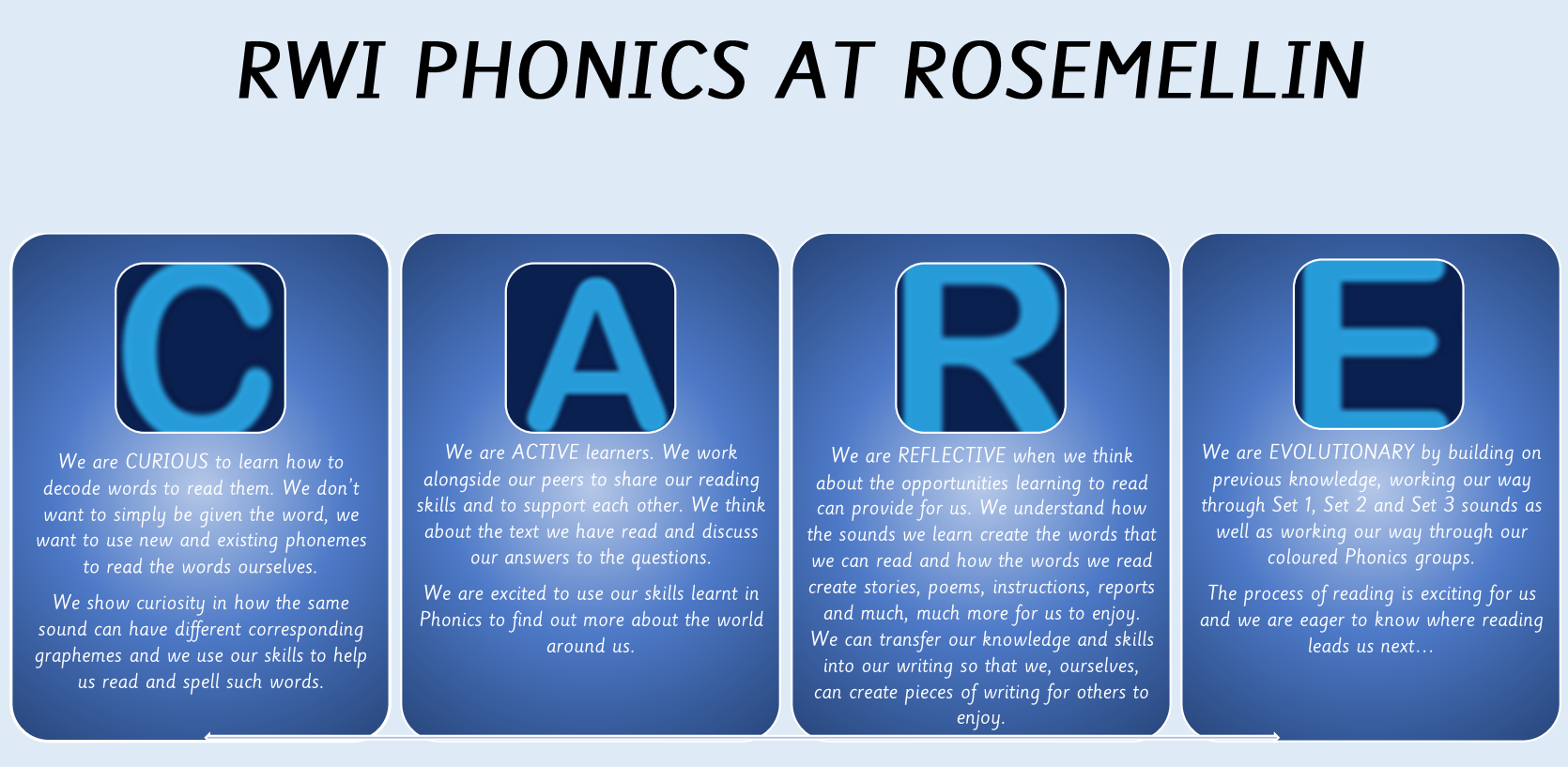Reading EYFS/KS1
RWI Phonics is taught daily for Reception, Year One and some of Years Two, Three and Four.
Our lessons consist of a ‘speed sound’ lesson, spelling using ‘Fred Fingers’ and reading.
RWI is a synthetic phonics programme which teaches children letter-sound correspondence; it carefully builds upon prior learning which is assessed half termly; and is taught in ‘coloured’ groups which are best suited for our children.
RWI – Expectations of Progress
Useful Links:
How Read Write Inc. Phonics works – a parent/carer’s guide
Understanding how phonics works for parents
How to help your child to learn the Read Write Inc. Phonics sounds

